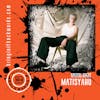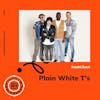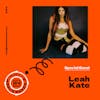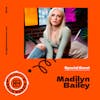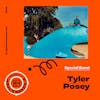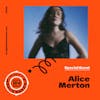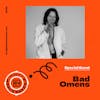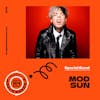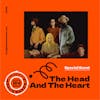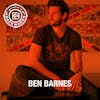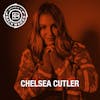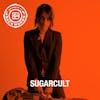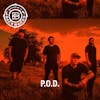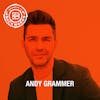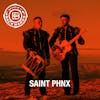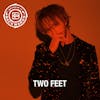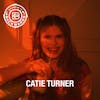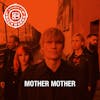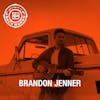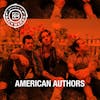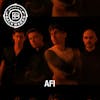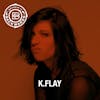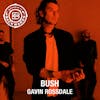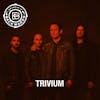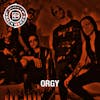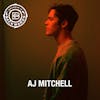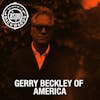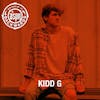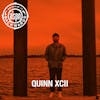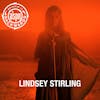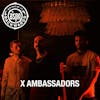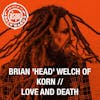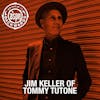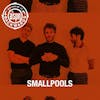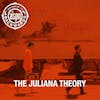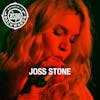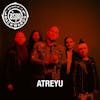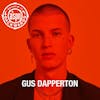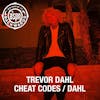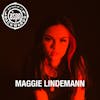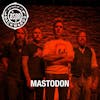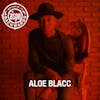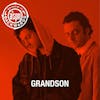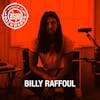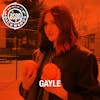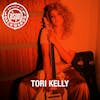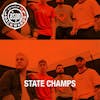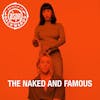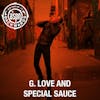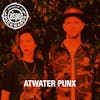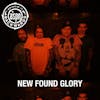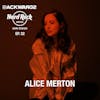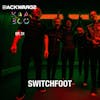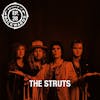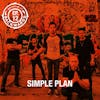Interview with Bob Moses
We had the pleasure of interviewing Bob Moses over Zoom video!
GRAMMY® Award-winning duo Bob Moses recently released their highly anticipated new albu, The Silence in Between, via the Los Angeles-based band’s third full-length, released via...
We had the pleasure of interviewing Bob Moses over Zoom video!
GRAMMY® Award-winning duo Bob Moses recently released their highly anticipated new albu, The Silence in Between, via the Los Angeles-based band’s third full-length, released via Domino Recording Company/Astralwerks. In celebration of The Silence in Between’s arrival, Bob Moses have shared a new single and video called “Hanging On,” a heavy-hearted but wildly life-affirming anthem.
The follow-up to Bob Moses’ JUNO Award-nominated 2020 project Desire and their first full-length since 2018’s Battle Lines (featuring the hit single “Back Down”), The Silence in Between fully captures what they refer to as the “ambient psychic unrest” of the current moment. With its moody collision of house music and emotionally potent pop, the album emerged from a period of immense upheaval in the lives of Vancouver-bred musicians/producers Tom Howie and Jimmy Vallance.
The fourth single released from The Silence in Between, “Hanging On” perfectly reflects the album’s duality of darkness and light, abounding in luminous melodies and effervescent rhythms even as Bob Moses speak to a certain weariness at the world around them.
Directed by Adrian Villagomez and Derek Branscombe and produced by Repertoire, the video for “Hanging On” centers on a full-band performance of the track, playing for an intimate audience blissfully lost in the music. As the starkly lit visual unfolds, the ground around the stage begins to crumble away. In a profoundly moving metaphor for carrying on in troubled times, the chaos ultimately brings everyone closer together as they fight to lift each other up.
Prior to the release of The Silence in Between, Bob Moses shared three hypnotic singles from the album: “Time And Time Again” (a November single accompanied by a spellbinding video); “Love Brand New” (a January release that cracked the Top 15 on the Alternative radio chart), and “Never Ending” (a February track praised by the likes of Clash, who hailed it as “indicative of the pair’s creative passions, blending ethereal electronics with the subtle use of club tropes”).
Bob Moses’ first full-length since signing to Astralwerks in a unique global partnership with Domino Recording Co., The Silence in Between is the latest body of work in a dynamic catalog that also includes their acclaimed debut album Days Gone By — a 2015 release featuring such standouts as “Tearing Me Up,” a Top 15 US Alternative radio hit nominated for two GRAMMY® Awards, with a remix from RAC winning in the category of Best Remix Recording (Non-Classical).
We want to hear from you! Please email Tera@BringinitBackwards.com.
www.BringinitBackwards.com
#podcast #interview #bringinbackpod #BobMoses #TearingMeUp #TheSilenceinBetween #musicinterview #MusicPodcast #NewMusic #zoom
Listen & Subscribe to BiB
https://www.bringinitbackwards.com/follow/
Follow our podcast on Instagram and Twitter!
https://www.facebook.com/groups/bringinbackpod
We'd love to see you join our BiB Facebook Group.
3 (1m 11s): Hello it is Adam. Welcome back to bringing it backwards. A podcast where both legendary and rising artists tell their own personal stories of how they achieve stardom. On this episode, we had a chance to hang out with Tom and Jimmy from Bob Moses over zoom video, both Tom and Jimmy grew up in Vancouver, Canada, and they actually grew up in the same town and went to the same schools. And they talked to us about how they got into music, totally different paths. Tom started off on guitar. He eventually started a punk band in high school, and then towards the end of high school, he wrote like a four song singer songwriter EAP that grabbed attention from the industry in, in Vancouver, he had, was offered like a development deal, but he also decided that really wasn't the path he wanted to take. 3 (1m 56s): He ended up going to Berkeley school of music for one year, doing some touring and playing a lot of shows around that area. And then he moved to New York and that's where he ran into Jimmy. Jimmy comes from a very musical household. His dad was a singer songwriter. His mom was in a band growing up. So he had a lot of musical influences and music in his home. He started off on drums and then quickly went into deejaying and he got way into electronic music and turntables while he was still living in Vancouver. He started working on a remix of the SIA song buttons, and it ends up doing really, really well. He gets offered a deal with ultra music through Sony, a few years into living in New York city. 3 (2m 39s): Jimmy had a rehearsal studio and Tom had one in there pretty much the same area of, I think, a couple blocks apart. They said, and they ran into each other at a Lowe's decided to go to the studio, try to work on a couple of songs together and knew each other from high school. And that's where Bob Moses formed. They talked about putting out the first couple of EPS with Bob Moses, a ton of touring early on getting signed to domino records and how big of a deal that was the major success of tearing me up. Being nominated for a Juno award on every one of the records, presenting a Juno, where they actually gave the award to Sean Mendez. They said, and they also scored a Grammy. So we talk all about that and all about their brand new record, which was a project that began during quarantine. 3 (3m 24s): And it's called the silence in between. You can watch our interview with Bob Moses on our Facebook page and YouTube channel at bringing it backwards. It would be amazing if you subscribe to our channel like us on Facebook and follow us on Instagram, Twitter, and Tik TOK at bringing back pod. And if you're listening to this on Spotify or apple music, it would be so rad. If you follow us there as well, and hook us up with a five star review, 4 (3m 48s): We'd appreciate your support. If you follow and subscribe to our podcasts, wherever you listen to podcasts, 3 (3m 54s): We're bringing it backwards with Bob Moses. This is about you too, and your journey and music and congratulations on the record as well. 5 (4m 2s): Thank you. Thank you. 3 (4m 4s): Yeah, I we've met a while back in 2017, I worked for radio station in San Diego and you guys played our big outdoor festival with like empire, the sun and a few other bands. It's Phoenix I think was on it as well. 6 (4m 20s): X, 3 (4m 21s): X best. Yeah, exactly. Yeah. 6 (4m 23s): I remember that. That was, yeah, that was, that's a great radio station. Actually. We get it up in LA sometimes and, and it's like, yeah, it's just a great alternative radio. It's awesome 3 (4m 32s): There. Yeah. I was on this station for a number of years. I'm originally from San Diego and that was the first time I heard you guys when we played Jeremy up and I was like, oh, this song is so good. And you guys cut the, but we had to cut the intro and I'm, and I'm sorry about that. Cause it's like on the record, it's got a long intro and then we 5 (4m 52s): That's. All right. 3 (4m 54s): The radio station did it. It wasn't me. I promise. But awesome. Well, so first off, tell me about where you both, did you guys grow up together or no, 6 (5m 2s): We did. Yeah. We both grew up in Vancouver, Canada. We went to school together, but the funny thing is we weren't super close friends back in school. We had an art class together and we were both kinda like the music guys, but I was super into trends at that point. And Tom was very interesting or songwriter and those two worlds at that place in time did not really combine. And so we were both the kind of guys that would show up to school, like just Haggard from having played nightclubs the night before. And there was kind of like that mutual respect of like, oh yeah, here are the other dude doing the music thing, but it wasn't until we moved to Brooklyn several years later, both separately that we met and kicked off Bob Moses. 3 (5m 42s): Okay, cool. Cool. Well Tom, tell me about where, where you were born, where, well, let me see. You guys were born and raised in the same town. So were you guys both born there and raised there obviously? Yeah. 5 (5m 53s): Born and raised Vancouver. Yeah. We went to the sled. Jimmy said we went to the same school, kind of lived close by to each other. We were friendly, but not, not super close. And I was in, I was in punk bands starting out and then sort of that got a bit when my punk band disbanded, we were to get Jimmy and I were in the same art class, the last two years of high school, my punk band like sort of broke up. And then I just, I had written all the songs and produced, produced all the demos and stuff for that band anyways. So we, I was just doing my own thing and kind of, you know, playing gigs around town. 5 (6m 41s): We bought Jimmy and I both had fake IDs and we're doing, you know, like the club thing and just Jimmy was playing music at like one 40 BPM and I was playing music much slower than that. So maybe halftime 1:40 PM. So, so we were a bit, yeah. I mean, for whatever reason, I don't know why we didn't really connect then, but I guess we were both were kind of just trying to discover music on our own terms. And, and when we both moved to New York set found our way to New York separately. I think at that time in our lives, we were both just kind of ready for a bit more open-minded and a bit more looking for something to grab onto. 5 (7m 23s): And I'm both a little alone in New York, in a big city and <em></em> straight Canadians and New York, you know, do what everybody in that situation would do I think, and have dinner and get to have a studio session. And we were like, it was like instant chemistry when we worked together in the studio for the first time, the rest is history. So to say, 3 (7m 46s): When you say that you said you're in a punk band first and what was the first instrument you got into or learned? 5 (7m 54s): Well, I mean, my parents tried to make me do piano, but I like the structure of it. And then I did guitar. I got given a guitar when I was eight and I just, I immediately tried to write, just start writing songs. So I was never really interested in like, I couldn't actually really solo on guitar since, till I was like 18 or 19. When I finally forced myself to learn, I was always more interested in like writing songs. So I guess you would say my main instrument has always been my voice because to me that's kinda like the lead of, of a song, you know, vocal and melody, but I was always playing guitar and drums and bass and writing parts for the whole, you know, like arrangement of tunes in my head when it was so 3 (8m 46s): Were you like in chorus or choir or anything like that or you just had it for singing? 5 (8m 51s): I was in choir when I was a kid. Actually you just reminded me of that. And we can say, like we were saying that I was in something called the Bach choir Until I hit puberty. Cause then I remember when my voice dropped and I was like, very, I couldn't, I was like, what's going on here? Yeah. So, and we sent, we played at the Orpheum, there was a Christmas concert, the Orpheum, which is like a really beautiful concert hall in Vancouver. I did that once or twice as a kid. 3 (9m 20s): Wow. Wow. Yeah. What about you, Jimmy? How did you get into music? 6 (9m 25s): Both of my parents were musicians and that was quite a successful songwriter. And my mom was in a French Canadian, progressive rock band. And so I grew up in a very, very musical household. And I think the thing is, is that my parents never tried to force me to do it. They kind of just like left stuff around. And my first thing that I gravitated towards was the dramas. So like I was a drummer. That's like what I wanted to do up until around the age of like 11 or 12. And then I got into like the first Lincoln park record and Moby play. And those two albums made me go like, how the hell does this? How does some like, cause like, you know, I heard like machines and guitars and I understood the drums and guitars, but I didn't understand the machine part of it. 6 (10m 11s): And then my dad basically sat me down and was like, well, like there's like this production. And like there's people that like make the records in the studio with all this. And I was very fortunate that I grew up with a sort of a studio in my backyard that my dad had, but I got to give them a lot of credit for, they kind of like just stood back and were like, if he wants to go do the things, he'll do it. You know, they weren't, you 3 (10m 32s): Just basic question on you at all. 6 (10m 34s): They didn't push it on me then, you know what they did, they let me make sort of my own mistakes. But I do remember the first time I was like, I want to go get turntables. And both my parents were like, no, that's not music. You know, It was a very like victory moment for me. Cause like I was the kind of kid I was listening to Slipknot and I would listen to it. My dad come in and be like, that's awesome. And I'd be like, no, you're not supposed to like this. And so dance music was the, was the, that was like my own lane, you know? 3 (11m 2s): Right. You're like, what can I figure out to do that? They're not going to be stoked on, I need turntables. Did you grow up going to their shows or anything like that? 6 (11m 13s): I mean, yeah. So my dad was more of like a, a songwriter producer behind the scenes guy and my mom at that point, I'd like to had stopped touring. So I grew up going to like a lot of concerts of either bands that my dad would work with or like bands that he was a fan of. But yeah, I mean, or like the funny thing about Vancouver and Tom and I talk about this all the time. It's like a lot of, 1 (11m 35s): They had a big scratcher from the Virginia lottery could be a big hit for you. The game gives you the chance to win up to $1 million. Virginia lottery scratchers everyday wins visit a lottery retailer near you for rods and more information. Visit VA lottery.com. 7 (11m 50s): Facebook leads the industry in stopping bad actors online that's because they've invested $13 billion in teams and technology to enhance safety over the last five years, it's working over the last few months, they've taken down 1.7 billion fake accounts to stop bad actors from doing harm, but working to reduce harmful and elicit content on their platforms is never done. Learn more about how they're helping people connect and share safely at about.fb.com/safety. Facebook leads the industry in stopping bad actors online that's because they've invested $13 billion in teams and technology to enhance safety over the last five years, it's working over the last few months, they've taken down 1.7 billion fake accounts to stop bad actors from doing harm, but working to reduce harmful and elicit content on their platforms is never done. 7 (12m 42s): Learn more about how they're helping people connect and share safely at about.fb.com/safety, 6 (12m 49s): Mid tier acts don't really come through there. So you either get acts that are just starting to get popular or you get like the arena acts. And so like during our teenage years, we were sorta like starved for, you know, for example, like a band like Tim and Paul or something, an act like that wouldn't really come to Vancouver, you know? And so it was either like, you know, we had like the Bon Jovi's and, and like the Justin Bieber type thing, or you had like Kanye when it, when he was just getting off the ground or like, you know, so it was, it was kind of frustrating in that regard, but I did go to a lot of like, you know, big concerts as a, as a kid. 3 (13m 26s): What was your first, when you overwintered you remember? 6 (13m 29s): Yes. Alice Cooper 3 (13m 31s): That's in the 6 (13m 31s): Same venue. Tom was just talking about singing choir in so many is not there. I'm an Alice Cooper cutting people's heads off. 3 (13m 39s): That's insane. What was your first show, Tom? Do you remember? 5 (13m 45s): Oh man, I think it was van Morrison. 3 (13m 48s): Really? That's a cool one too. So I know there's a big artist. 5 (13m 53s): Yeah. All I remember is it was van Morrison. Oh, it was my mom. And I was like, you know, like eight or nine or I was young. And I just remember being told how like much of a diva he was and how it was really cranky. And like some times he came on and he was famous for coming on late. He came on on time as far as I remember, but I remember being like being like kind of scared of him because of that, you know, in a weird way. I think my mom was trying to prepare me for like, maybe be bailed or something, but it was amazing, like just the musicianship and like his band and all that stuff. I just remember being like, whoa, 3 (14m 33s): Do you remember the moment that you wanted? Like you realized, like I want to do this. I want to pursue being in a band. 5 (14m 40s): I don't remember a moment not feeling that way. 3 (14m 44s): Oh, interesting. 5 (14m 45s): So like, I think my mom used to tell a story where I would like be, I would like go to bathroom and just be like, wonder where I was. And I'd been in there for an hour singing because of the acoustics. And then I would like come out and announced that I was going to be a musician. That's always a backup plan. I was going to be an actor or something like that. But when you ended up going to Berkeley, Berkeley for, I did, I did. I went to, I went to Berkeley for a year and I was sort of, I was sort of anti music school in a weird way. 5 (15m 26s): I think my experience with all sorts of musical lessons up until that point had been very, that it was very stuffy and that I wasn't, like I knew I was like a good songwriter and I ha I could do something, but I kind of thought like, I wasn't a good enough musician or like a re like I kind of felt like there was this divide between what my idea of people who went to music school or who were good enough to go to music school mainly around being able to read music and all that stuff. And, and so my mom pushed me to go to audition. I was kind of, I had like a development deal in, in Vancouver after high school. 5 (16m 11s): Wow. And I kind of with this little record label and I was kind of like, they wanted me to be in the grade in grade 12 of high school. I've kind of put up this great 11 or 12. I can't remember. I put out this like little EAP of just four songs I had written that was very like singer songwriter. And it was kind of like a big total, 180 from everything I had done before I had always done like really fast, hard punk stuff. And then I put this sort of sweet singer songwriter for songs that I'd written out that, that, like, I actually got a bit of buzz in Vancouver and I was like selling lots of copies out of my trunk of my car and stuff like that. I kind of had like a little high school buzz going on, you know, and, and I had a fake ID and I was playing in, I had these older guys into my band. 5 (16m 59s): I was playing clubs a few nights a week and stuff. And so it had a little development deal, but they wanted to, they wanted me to do the singer songwriter thing. And I really wanted to like push the studio part of it and make it, I wanted it to be good songs, but I want it to sound really cool and be out there and like be more interesting sonically. And the producer I was working with really wanted to keep me more like you're going to be a singer song or dude. And I was like, no. So that, so that was a sort of, that was a good learning experience, but it was sort of hard. It didn't really lead anywhere, you know? And then my mom, I was a bit lost and I come from like a family of academics. 5 (17m 39s): So everybody wanted me to go to school. And so my mom suggested that I audition for Berkeley. Cause like she knew I wasn't into music school per se, but she thought that like this cool school sounded pretty cool. So I begrudgingly went to Seattle to the Jimmy Hendrix museum and did a, an audition there. And all I did was just like play a song and written. And I was, so I remember being so nervous and I remember playing the song and I finished the song and the guy said, wow, you're going to make a lot of money out of that song one day. Wow. And I was like, oh, thanks. Which I haven't made any money off that song never released. 5 (18m 22s): But point being like, you know, he was like, I was like, oh, like somebody from a music school thinks that I'm like good. You know, which is cool. And it was, I got a partial scholarship and I went for a year and I learned a ton and totally, totally, you know, got rid of that silly immature idea, but what music school was because it's great there, Brooklyn is awesome. And I just, I just, I was playing gigs. I did the same thing. I knew. I like hustled. I got a band of older musicians who were kind of almost done their time there, who were all really good and started playing gigs around the Northeast, borrowed my girlfriend's car and would drive on the weekend and play like, you know, whatever cities I can get myself booked in. 5 (19m 8s): And, and then I just knew that like I could, I knew I could stay on at Berkeley and have a great time and finish my degree and stuff like that. But I sort of felt like, well, for what I want to do, there's no real point in having a degree in music and I just need to like, go do it. You know, I just need to go like hustle. And so I, I left after a year to move to New York. 3 (19m 31s): And then that's where you met back up with Jimmy And Jimmy real quick on, on Tom's EAP. Do you remember, do you have that record or do you remember him putting it out if you went to the same school? 6 (19m 44s): I even have a ton of how he Kesha in my 8 (19m 47s): Awesome. 6 (19m 50s): No, no. So he was like, it was cool because I remember, I didn't know, Tom, I mean, I knew Tom was in a punk band, but like, you know, we were all young doing, so I was in a metal band at one point and it was like, we played like music nights, but then I remember one assembly. We would do these, like this thing at our school called arts week. And every assembly they'd bring in like, you know, performers or whatever. And one assembly, it's like kids from the school and Tom did a song, just him and an acoustic guitar. And I was like, holy shit, this is, this guy's really good. You know? And then it was like over the next sort of year and a half, he was, you know, all over the place around Vancouver playing songs, like assembled like a little band and they, and they played everywhere and it was all the songs he'd written. 6 (20m 35s): And he had this EAP called the stepping stones EAP. And I remember like I bought a copier, got a copy somehow. And it was like a big buzz in like a little, no, it wasn't. I mean, it was really like for, at the time I remember it was like, you know, really, it was like, wow, this guy's actually doing it. You know, it felt really legitimate. And like, there was a little buzz around, I mean, I was in a band and we were all like, oh man, Anton, how he's like that guy's actually really good. You know, 5 (21m 2s): Not too bad for like a high school. 3 (21m 6s): And you ended up getting to New York first, right? Jimmy you move from, from Vancouver to then to New York. 6 (21m 11s): Yeah. I, I, my girlfriend and I, at the time she got accepted to Parsons school of fashion. So she went to New York and I sort of followed her. And at the same time, coincidentally SIA had put out an album called some people have real problems, I think is what it is. And there was a single off there called buttons and I got the opportunity to remix it and ultra records picked it up and it ended up doing really well. And so ultra records at the same time that I was thinking about moving to New York, like offered me a recording contract. And I was like, oh, this, this is like all working in my, in like everything seems to be going well. 6 (21m 51s): And I just remember going to their office and talking to them and just realizing how I didn't really, I wasn't really sure. I didn't feel like that remix or what that was about was really what I wanted to do. And I was like, I told them the ideas for like, what, like, I want to like, you know, maybe start my own label or do something or like, you know, branch out more. And they felt, and it basically felt like, no, just like make this remix a hundred times. And like, we're going to pair you with people to make more stuff that sounds like that. And I remember being really nervous being like, I don't think I'm going to do this, but I'm like 18, I'm moving to a new city and I don't really have any other prospects. 6 (22m 32s): And I was just like, I hope something else works out. And it did, but yeah, I think like New York at that point, which is sort of calling to me and it was like, you know, funny enough, like running into Tom and then all of a sudden getting involved in this whole sort of deep house wave two years later, that ended up happening in New York. I'm so happy. I said no to that initial deal. 3 (22m 53s): Yeah. So you had that, that remix then when you were still in Canada before you had even moved to New York? 6 (22m 59s): Yeah. It was like, I think I finished it on a laptop in New York, but had 90% of it done in Canada right before I moved. 3 (23m 5s): Wow. Okay. And then when do you guys end up meeting up and you run into Tom and, or you're like, oh, obviously new did music. Cause he had his, his EAP, you know, in high school. And like, how did, how did you guys run into each other? 6 (23m 18s): So I moved to New York in 2008 and then Tom and I ran into each other. I want to say it was the fall of 2010. So we ran into each other in a parking lot at the Lowe's down the street from where we both had rehearsal spaces. So we had rehearsal spaces like a block or two away from each other. And we didn't know in red hook and I actually go on us. And the, so we met, went out for dinner and then I think like a week later it got in the little studio spot that I had. And Tom was thinking about going back to Canada. He was like, you know, he just got out of Berkeley and was sort of like in the same place that I was, were kind of stuck, was making music, but you know, wanted a project that they could, you could really sink your teeth into creatively. 6 (24m 4s): And we, after that first session, we both like whatever plans we had we'd changed. We were like, we're going to just do this. We're going to like become a band and do this. 3 (24m 14s): Okay. Then that's and from there on you just started working together. 5 (24m 18s): Yeah. Well, I, I went, I went back to Canada. I basically ran out of money and, and I went back to Canada. My plan was to go back to Canada and regroup. And so I did, we met like, I think we had like a studio session on a Tuesday. And then by like that first studio session. And then by like Friday, I remember us being like, oh, we have to change all our plans. And then like very shortly thereafter, like maybe the next week we were both going away. Like I think Jimmy, Jimmy went to Berlin with his girlfriend for a little while. And I went back to Canada for like three months to kind of like save up money. 5 (25m 1s): And it was, it was the end of the year. So it was, it was coming up to Christmas time and holidays and all that stuff. And so I went home and worked all sort of jobs. I could to save up some money and then move back to New York and Jimmy and I moved into an apartment together. And then, and that was in February of 2011. And then we just kind of like, we were like, I don't know, really, we don't really know what we're going to do, but we're just going to start working on music and figure it out, you know, 9 (25m 34s): Hey, it's Johnny wine look and feel your very best visit the team at cool contours. They are the number one, the CoolSculpting provider in Virginia, their award-winning team of certified CoolSculpt Dean Leete and Colton specialists work with you to create a fully customized treatment plan to achieve your dream body. Learn more@kool-contours.com. That's cool-contours.com as right by Allergan and June, 2021. CoolSculpting leads FDA cleared, three visible fat bulges, nine areas of the body. Some common side effects include temporary numbness, discomfort and swelling. 1 (26m 4s): You got a big scratcher from the Virginia lottery could be a big hit for you. The game gives you the chance to win up to $1 million. Virginia lottery scratchers every day wins visit a lottery retailer near you for rods and more information. Visit VA lottery.com. 7 (26m 18s): Facebook has invested $13 billion in teams and technology to enhance safety over the last five years. Over the last few months, they've taken down 1.7 billion fake accounts. Learn more about their ongoing work@aboutthatfb.com slash safety. 3 (26m 33s): And then once you move, you ended up moving back down to New York and continue with the project. And then 5 (26m 39s): That's when I really began. 3 (26m 40s): Okay. That's when I really began. And well, tell me about obviously the success of tearing me up, but was that like the first real big moment for you guys? I mean, you had signed to a label before that though. Right? 6 (26m 50s): We had a series of big moments in the senior in before that. So by the time we got to tearing me up, we were already touring like pretty extensively. We started in 2011. It took us about a year to sort of stumble into the, what ended up being what we call like the Bob Moses sound like this deep house, dance music, rock and roll hybrid sort of thing. And basically like we had put out, we were on this little independent label called scissor and thread in, in Brooklyn, which was like a dance underground dance label. And we had put out this EAP called the hands hands to hold, which was the first thing like we've ever released as Bob Moses. And so that got a buzz in the underground dance community. 6 (27m 33s): We started playing in like San Francisco and Mexico. And you know, we went around the country, started going over to Europe. And then in 2013 we put out the far from the tree P, which had a song called all I want, which did really well for us. And we played burning, man. We released a set from burning man, which was basically an hour of our own music from the hands to hold. And far from creepy that AP came out in the fall, the burning man set, came out, got released the same time. And from October, 2013, we were like all of a sudden pack the dates, like every weekend we were touring and obviously a tearing up didn't come out until 2015. 6 (28m 17s): But that, in that time, like we were like touring quite extensively as like a club act off those two EPS 3 (28m 25s): In 5 (28m 25s): That 6 (28m 27s): Time 5 (28m 28s): Almost. 6 (28m 29s): Yeah. And like, I remember we played like, you know, we were doing these underground events in New York, so there was like a dim sum, all that we rented out and through our own Bob Moses event. And like, we, I think we sold like 650 tickets or something like that. So by the time we were S Domino's signed us, we were already this like a sort of somewhat established club act. And like, I remember like Tom and I would like, you know, read musical books about like, you know, the Ramones or any bands. And like our, our theory was like, oh, if you just build your own thing yourself, then you like, you know, just kind of sell records out of the trunk of your car type of mentality. Like that will make you more appealing. 6 (29m 10s): Like not only will you have your own scene or your own, like, you'll understand the world that you operate in, but like a label will, you can just tap into a label and they'll just expose you to like everyone else around the world that maybe might like that scene, you know? 3 (29m 25s): And that, and what'd you say that's kind of what happened as far as like getting to the next level as far as the radio went and all in all the came with tearing me up. 5 (29m 33s): Yeah. I think like, I mean, we were already, there's this really beautiful and really cool underground music, I guess it's like, it's really grown now, but like when we were coming up, there was, it felt like there was this underground dance scene that like lots of acts that we were friends with or like looked up to could just, you could just tour in that. And it was, it was based around like very independent labels. It was all about like SoundCloud and Spotify. Wasn't really a thing yet. And through the internet, you could just like to, you know, you could do 150 dates a year touring around the world between mainly between south America, north America and Europe. 5 (30m 15s): And like, it was kind of like based off, it was like the post EDM wave of like the next thing that was coming up in America. But, and there was always a really healthy scene for it in Europe, you know, around a visa and like the summer season and stuff. And so that's kind of like that we were in that sort of wave that was coming out of the Brooklyn warehouse scene. We started in the Jimmy mansion. And I think the thing for us was we were always, we really wanted to push the musical aspect of it and we wanted to find a way to make it more as musical as possible and more song based. 5 (30m 55s): And our earlier records are quite a bit more clubby, you know, like, especially those EPS, then you kind of hear us, like with all that, with us, with that song, all I want, we kind of starting to sneak a song in there, you know? And so, so then, yeah, so, like Jimmy said, we were playing, we had quite a buzz going into New York, but we were also like, you know, making a living touring doing two or three shows a weekend, crazy and domino, we met with Susan Bush who was then at domino, who was our ANR there. And we just kinda talked to her and told her what our vision was. You know, if we want to be like an act that we very much viewed this sort of dusty deep posts, brooding thing as like our, our sound that our songs would live in, you know? 5 (31m 47s): And so we very much viewed ourselves. We, we view acts as sort of like, like even a rock band or like any other kind of group. We just kind of view it as like a song in this clothing, you know? And so we Domino's reached out to us through Susan and we met with Susan and she was like, yeah, I think we, you know, after that first meeting, she was like, I feel like we're on the same page. And so they offered us a deal and we loved the idea of domino because they were an indie label and they, they really had the Fs of like, just let the artists do what they want, but they also had like the resources to, to get you going, if you had something that was that, and then you spend some money on, you know, so we made, we signed a deal with them sort of while we were touring in 2014. 5 (32m 41s): And then we just started working on our next batch of music when we could, you know, and tearing me up, came out of those, out of that writing. And we were still touring quite a lot when we made that record. So I remember we handed it in and we, we basically, you know, we did some dates, we came back, we finished it, we sort of handed it in to get mixed. And then we went on a European tour, you know, so it was kind of, it was kind of like, go, go, go all the time. And, and then, then when it came out, It was sort of a slow build, you know, like we, we, we thought tearing me up was really special from the beginning, but the label was like, I don't know, like, it's fine, but like what, let's try this single first or that symbol first. 5 (33m 31s): So we kind of played the game with them, like play ball. Cause we, you know, what do we know where to punk kids from Ventura don't know what we're doing? And I remember we were in a coffee shop in Berlin. We were in a coffee ship shop in Berlin, like talking about single stuff. Cause we, we, we were, we had moved over there to kind of base out of there while we were touring Europe in the summer and, and turn me up, came out and like, it was, you know, we would play it live before it was out in kind of like people would kinda shuffle and we'd be like, Ooh, I don't know, maybe this isn't going to work. And then it started gaining speed and it had lived a bit longer. And then it started being like the one that we really noticed when we played live that like the whole crowd kind of lit up and it just sort of was a long ride and we would go and we'd do these radio things with the label and they'd be like, oh, that's a great, that everybody's really enthusiastic. 5 (34m 23s): And we were kind of like, okay, you know, we're just positive and try to do everything we could. And it took a long time. It took like eight months or a year as the radio sometimes does for that song to really build into what it became. You know, 3 (34m 38s): The radio is always a little bit late. I'm trying to front sell a song. You're like, this is new music from Bob Moses. That was, if you were actually knew who they were before its record came out a year ago or whatever, you know what I mean? Which is always interesting to me. Oh, well, I mean, for you, Jimmy, like signing that deal and, and getting signed to a label that must've been huge, especially coming from a family of musicians. Was that kind of a, a big score with your family? 6 (35m 6s): I mean, a hundred percent, I think it was like, it was interesting because at the time, you know, this was still pre streaming and everything. So like nobody knew what the rules were for the music business. And I remember talking to my parents and you know, when we were leaving high school, like 2007, 2008, like the con the financial collapse just happened downloading and torrenting was rampant. Right. My dad was like the music business, like for lack of a better phrase is almost a lost cause. Like the good old days are over of the CD this. And so he was like, if you're going to do it, you got to do it just because you love it basically. Right. Which is the same reason why he got into it, why everyone gets into it is because regardless of whether or not you sell 10 million CDs or get a billion streams, like it's still really hard work and you gotta do it cause you love it. 6 (35m 54s): And so you just knew that if you know, Tom and I loved it, we'd find our own way. And so at the time, you know, going with domino was, it just felt like it was a huge stamp of approval for like, you know, our little underground dance act. All of a sudden beyond this label, like has the Arctic monkeys and, and John Hopkins and all this stuff. And I remember like we had a really funny moment, actually, we were helping our friend recorder record in Benton Harbor, Michigan. There's a great guy by the name of bill scabby that runs a studio out of there. And he was producing the kills record at the time. Wow. Jamie hints from the Kilz was in that studio complex with us. 6 (36m 38s): And I mean, he was like one of the, still to this day, one of the coolest, and I don't mean cool from like, like nicer, whatever, just like the way that he looks, the way that he walks. He's like a living gorillas character. Like, you know, he's like a real deal rockstar. And, and he was telling us like how, like he used to sneak over into like the east side of Berlin, like do punk shows. And we were like, man, this guy's a bad ass. You know? And he was saying that they were on domino and how much they loved being on domino. And I remember Tom and I thinking like, man, like usually guys like this hate their labels. Like they're always like our labels take all our money. And like he was talking about how awesome they were. 6 (37m 20s): And I remember Tom and I thinking like, man, wouldn't it be awesome if one day we could be on a label like domino and then sure enough, it, it sorta happened. So he was definitely a to answer your question. Yeah. It was a big freak out and sort of like definitely an establishing moment for us. 3 (37m 36s): That's amazing. Well, to move forward a little bit quickly here, so we can, I want to talk to you about your new record, but you score real quick on Tara. We have you get a, you get a Grammy, which is insanity for that out for that record. And then you'll get a Juno nomination for, but if, you know, battle lines came on 2018 and then you'd get a Juno nomination for desire, right? 6 (37m 59s): Yes, yes. Both. I think. Yeah, that was 3 (38m 3s): Oh, and oh, for both. Okay. Was that tell me about that though. I mean, being from Canada and having that sort of, I mean the Grammys of, of, of, of, you know, Canada, like that's huge. 6 (38m 15s): Yeah. We went to, 5 (38m 17s): Well, we did, we get nominated on tearing me up too on, 6 (38m 20s): Well, we've been, I think all of our albums, apart from the EPS we've been nominated 3 (38m 24s): For. 6 (38m 25s): I think we, I think we like to call ourselves like four or five times GMO Juno. 3 (38m 30s): My research sucks. I'm sorry. 5 (38m 33s): We're like three time June Horton losers, 3 (38m 36s): But still like, wow. 5 (38m 38s): No, I mean, yeah. I mean, remember we w we, it was super cool. I mean, we got nominated for the Grammy's and then we got nominated for the Junos on the first album and it felt like pretty legitimising, you know, and I remember we went, it was in Ottawa, right? 6 (38m 53s): Yeah. It was an Ottawa. 5 (38m 55s): And we went and we sat at the table and we didn't win that year, but it was just super cool to be there and see all the, all the people, you know, and 3 (39m 4s): Like a dream, I would think, I mean, you probably guys probably watched it growing up as kids, like on TV or anything. Yeah. 5 (39m 10s): And we even announced, we even like announced it one year. Right. Was that the next year 6 (39m 16s): We present? No, we print. Yeah, you're right. The next year we went back and presented an award to Sean Mendez 5 (39m 24s): Arena 6 (39m 25s): On stage in the arena. And it's pretty, I mean, this is a very Canadian thing, but like we were backstage with this band called Billy talent, another 3 (39m 32s): Guy named Billy Fallon 6 (39m 34s): And Josh Ramsey who wrote call me maybe for Carly Rae Jepsen he's from Vancouver. And so We just had this like big, like Canadian music, like the, I mean, you know, Billy talent and Sam Roberts or bands that Tom and I would like be on their records in high school and love them. And like, they're just, they were super cool. And like, it was, it was, it was just kind of awesome in a very like to be from Canada and be around acts that, you know, are just massive. And Canada was just very, it was just a cool thing to be a part of 3 (40m 1s): That's so rad that's and I'm sure that's probably something too, like your extended family is like, oh, like, you know, my nephew or whatever is on, is going to be at the Juno awards are presented for like, that's so huge. 5 (40m 14s): Totally. I mean, Canada is a weird one. Cause like being from Vancouver, 9 (40m 18s): Hey, it's Johnny wine look and feel your very best visit the team at cool contours. They are the number one, the CoolSculpting provider in Virginia, their award-winning team of certified CoolSculpt Dean Leete and Colton specialists work with you to create a fully customized treatment plan to achieve your dream body. Learn more@kool-contours.com. That's cool-contours.com as right by Allergan and June, 2021. CoolSculpting leads FDA cleared, three visible fat bulges, nine areas of the body. Some common side effects include temporary numbness, discomfort and swelling. 1 (40m 48s): They had a big scratcher from the Virginia lottery could be a big hit for you. The game gives you the chance to win up to $1 million. Virginia lottery scratchers every day wins visit a lottery retailer near you for rods and more information. Visit VA lottery.com. 7 (41m 3s): Facebook has invested $13 billion in teams and technology to enhance safety over the last five years. Over the last few months, they've taken down 1.7 billion fake accounts. Learn more about their ongoing work@aboutthatfb.com slash safety. 5 (41m 19s): It's weird because Vancouver, you kind of almost feel like you're very isolated from the rest of Canada, which I guess you are in some sense, Canada is so geographic, but it's, so everybody just lives along the border. Right. And so to, to get from, like, I remember when I went to Berkeley, I was like, oh, sweet. I'm going to be able to go drive four hours in any direction and hit way more people potentially that I could drive in across all of Canada and back 3 (41m 47s): In. Right, right, 5 (41m 47s): Right. So, so anyways to be, I mean, Jimmy had a bit more, Jimmy had family from the east coast, so he went back there a lot more. But when I would go to the east coast of Canada as a kid and the most I've ever been to the east coast, since we started touring and stuff and going to the Junos, I sort of felt a bit more even like I was in another country. Like, I, it wasn't that much different to me from like going to Toronto or Montreal than it was to like go into Boston or New York, you know? So it was really cool to be at the Junos because it was, it was this weird experience of, of all this stuff from your childhood. 5 (42m 27s): Like these, you know, sitting with these bands who we used to, like, I used to watch on much music, which is the Canadian MTV and be like, oh man, one day, hopefully I can do what for real, like they do. And then be like in the green room at the Junos talking to them and like, to also feel like you're a Canadian, that was the first real time. I felt like a sense of like national sort of Canadian pride or Canadian fellowship, if you will, because like being growing up in Vancouver, you kinda, you know, my dad's from Scotland and we went to Europe a bunch, but I didn't really explore the rest of Canada that much. And it kind of almost felt like a foreign country to me, the east coast of it, you know? 3 (43m 10s): Yeah. Yeah. It's amazing that, I mean, like to other artists from Canada I've interviewed before, it said like, you know, that was, you know, you can get a nominated for Grammy, which is awesome and huge obviously, but like there it's like, oh my God, the Juno is, everybody knows and everyone's watching it. It's such a, it's such a monumental thing for, for people in Canada at the time. And that's, I just thought that was so cool that I didn't know that you've been nominated that many times. That's incredible. But so, so speaking on this, this new record, it just came out today. When, when did you start writing it? Was it during the pandemic or when did it begin? 5 (43m 46s): And then we, like, we, we finished, we kind of made desire on the road. We kind of collect little bits and bobs of beats and musical ideas while just like on a tour bus or in an airport or on an airplane or, you know, and we fin we kinda like came, pat came back to, we built our studio in LA and we kinda finished it up right as the pandemic was happening and we put it out and then we got straight into making our next batch of music. So the only thing that we had that we really like kind of had before, before the pandemic started was the beginning ideas of love brand new, which is one of the singles, the first or second single off the record. 5 (44m 35s): And we had written that a year before we had had a studio session in LA with John Martin. And Michelle's a Tron who are these two great writers who really specialize in like doing really good songs, but like in dance music, you know, and then they were fans of ours and then asked to re has reached out, asking to write. And we had never really done a session before with other people. And it just like, it was sorta like that first session with Jimmy. And I it's like we just got into the room and it was like instant chemistry and all of us just on four cylinders, full steam ahead, you know, coming in with ideas. And so we got the core of that idea, the melodies and the, some of the lyric of the chorus and sorta like the bare bones of like the beat in one day. 5 (45m 26s): And then it kind of sat in the vault, so to speak, we were busy touring. We were putting out other stuff we were working and we realized that it wasn't really right for what we wanted, the desire AP to be the desire. AP is like a fully mixed sort of hark back to our early days, like club record. You know, we wanted it to feel like on battle lines, we really went full band and we almost like turned our back on house music a bit too much. We felt like. And so we wanted the desire AP to really be like club focused. And then, and this song that we had sort of started with John and Michelle didn't fit into that. So as soon as we put that, the desire be out and we got working in the new batch of songs, loved brand new was the first thing we kind of opened back up and we, we finished that pretty quickly and it sort of set the tone for the rest of the album. 3 (46m 17s): Okay. And were you, did you collaborate at all and the rest of the record or was it just back to then the two of you with that as a kind of a jumping point? 6 (46m 25s): No, we totally did. Like for this record, I think we've written the most amount of music we ever had for an album. And a lot of it was just Tom and I hashing it out. And then if we opened ourselves up to doing sort of like zoom sessions, just like we are right now, and we would write songs with people and we just, we were just all about idea generation and we didn't care where the ideas came from or how, and, you know, we just wanted to just generate as many ideas as possible. Like we were, you know, sort of trapped in a room, you know, we were in each other's bubble. So we would only hang out with each other and write songs. And so we thought, you know, sort of now, or never is a good chance to like, you know, get, try and try and see what will happen. And we had such a good time with John and Michelle before the pandemic writing love, brand new that, you know, and I think we were also like at the size of an actor, we could really tap into people that like were doing stuff that we really were interested in. 6 (47m 14s): Like for example, we, we were very fortunate to work with this guy, Stuart price. He was like, you know, did confessions on a dance floor for Madonna. He's like, was, he's also an artist called Jacques Lacan or thin white duke. And he's done like the killers, big records. He's like super producer and like nothing actually musically came from it that we ended, ended up on the record, but like just the wisdom that we got from him as a person and sort of wherever we are, wherever we were at in our careers and the questions that we had from like, he ended up being sort of like having this like mentor role for the time that we were working with them, you know, and really helped sort of like guide our ship because we were, you know, coming from the underground and going to, we, you know, we, Tom and I have a tendency to like, we love writing pop songs as well. 6 (47m 57s): And so for him, he was like an underground DJ that ended up producing one of the most accessible Madonna records. And we were like, what was that? Like? You know? And so all of the we've learned that like from collaborating, you always get something out of it. Even if something doesn't make the record, you either learn a new production trick or learn writing from someone else's perspective, like, you know, tricks about writing lyrics or like, and it's so valuable, you know? So I think it just took us up to a while where we felt confident together in our abilities to write that it didn't feel like something that like, oh man, like we're, let's just phone it in and have someone else write our songs. Like it's not like that at all, you know? But it, it, it was an amazing thing to open ourselves up to during the pandemic. 3 (48m 40s): That's awesome. That's a great record silence in between. It's amazing. And I appreciate both of you, you guys for being here today. Thank you. My last real quick question for both, both of you is if you have any advice for aspiring artists. 5 (48m 54s): Yeah, I do. And we always used to say, we always used to ask ourselves. We always used to say like, what's the answer? How do you, what's the trick? You know, I think we were on a beat. We did a gig and we were on a beach and St. Bart's in the Caribbean with David Bryan from Bon Jovi one time. And, and he said to us, it takes a lot of hard work to get lucky. And I think what he meant is like, you have to work really, really, really, really hard. That's a prerequisite. And the more, the more, the more you work hard, the more chance there is of when luck comes along and the fates align of being able to capitalize on that good luck. 5 (49m 40s): And I think that that's all you can really focus on. I think like if I was kind of telling myself when I, when we were in our early twenties, starting out, I would say like, it's really all about making good records and putting on good shows and the rest doesn't really matter as much as everybody says it does. If you can do those two things well, and you can also find a way to do it, that's slightly unique, a slight little twist. That's your own, that's all you really need. And the only other piece of advice I would give is for people trying to do, if you're trying to be an artist, like if you're trying to do, you know, this is my band, or this is my project and we're taking it, and this is, you know, our thing it's really helps to find a scene that's kind of happening to be that you feel connected to, to be a part of, like, that was a thing that really helped us. 5 (50m 35s): Like if it wasn't for the New York sort of warehouse raves team in like 20 12, 20 11, that was really bubbling up. I don't think that Bob Moses would be what it is at all. And I think that, you know, who knows Jimmy and I may have had success with some other sort of thing or maybe separately or whatever you never know. Right. But I think that for us, a really cool thing was being part of a scene that we could like, not just be this lone Wolf out there trying to sell tickets to our show at the local music venue. You know, it was like, there was a thing that people were going to, and there was a community and we were, we, we thought it was super cool and we were part of that community. 5 (51m 18s): And so I think as an artist, it's tempting to kind of sometimes be like the center of your own universe and kind of feel like, oh, what I'm doing is what am I doing? How am I going to make it? It's a sort of very self-centered thing in a lot of ways. But I think that if you can balance that by going out and getting involved in your community, that will, that was what really helped us. So 3 (51m 43s): Amazing. Thank you so much, Jimmy. You have anything? 6 (51m 46s): I, I agree with all of that. And I would say only thing is, is that, cause I remember being, we were both very stressed out when we were young, like wanting to make it, I would say, enjoy the ride. It's music. It's supposed to be fun. It's a lot of hard work, but it's supposed to be fun. You know? So if you're stressed about what the future may hold or any of this, just no hope for the hard work pays off, but enjoy the ride.
Featured Episodes
Here are some great episodes to start with. Or, check out episodes by genre.























